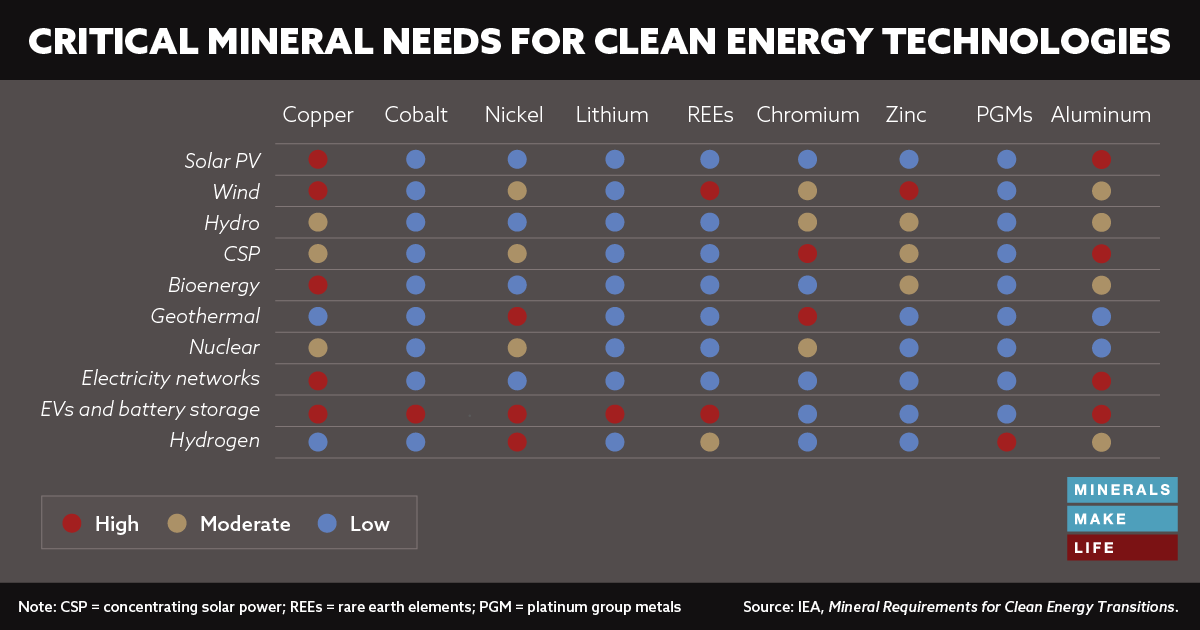July 11, 2025
One Big Beautiful Bill Raises Stakes for U.S. Mineral Production
One Big Beautiful Bill Raises Stakes for U.S. Mineral Production ...
Read More ›
The United States has made significant commitments in recent years to address climate change, such as promoting sustainable forms of energy and reducing greenhouse gas emissions. Achieving these commitments, however, requires major investments in technology and infrastructure that rely on minerals like lithium, cobalt, nickel, copper and rare earth elements. With every new proposal, we are reminded of the U.S. mining industry’s unique role in helping to usher in an energy future that doesn’t leave America’s workers, military and economy as an afterthought.
In 2021, President Biden issued an executive order, setting a target of achieving net-zero, economy-wide carbon emissions by 2050. In subsequent action, the administration called for a carbon-free electric grid by 2030, half of all new vehicles sold in 2030 to be zero-emission and all new vehicles to be zero-emission vehicles by 2035.
To help reach this goal, Congress responded by passing a $2 trillion infrastructure package with numerous federal incentives and investments for energy technology, electric vehicles and charging infrastructure and even loans for U.S. mines producing the minerals essential to these technologies.
The International Energy Agency estimates the demand for some minerals could grow by more than 40 times by 2040. The IEA made it clear that to achieve Biden’s goals, the U.S. will not only need more domestic mines to source minerals but will need to diversify its supply chains around the world.
According to Benchmark Mineral Intelligence, more than 300 new mines worldwide would be needed to meet EV demand alone, not including the hundreds of mines we’ll need for wind and solar farms.

Despite being armed with the data, the Biden administration has recently directed its focus to sourcing minerals from U.S. allies, with two battery trade deals recently finalized with Japan and Canada. Additionally, the Administration is also in talks with European allies over similar agreements. While coordination with allies is an important piece of the puzzle to fixing mineral supply chains, what’s missing is any tangible action on domestic mines.
To date, America has only one mine for producing cobalt, nickel and lithium. Rather than fixing cumbersome permitting timelines or expanding access to resource-rich lands, the Biden administration recently withdrew hundreds of thousands of acres of mineral-rich lands from potential mining sites, announced mining agreements with Zambia and the Democratic Republic of the Congo and led the U.S. to its highest mineral reliance ever.
Establishing robust domestic sources of minerals ensures we have a steady supply in the event of a geopolitical disagreement, ensures the money we spend on minerals flows directly back into our economy and ensures the surplus of minerals needed to reach net-zero are being mined under the highest safety and sustainability standards. While getting verbal support is a great start, America has a long way to go to ensure a steady supply chain. To truly meet net-zero goals, policymakers need to advance U.S. mining and secure domestic sources of minerals. A sustainable future is possible, but it starts with mining.